Plumbing Pandemonium alert!
Never do these 10 DIY plumbing mistakes that will leave your pocket and pipe both drained. As they said, “’penny wise, pound foolish,” this fits perfectly with the world of DIY plumbing, where a dream of cutting cost and saving time turns into a nightmare of leaking pipes, blocked drains, and burst pipe repairs.
Water – a life giver becomes a life sucker when the plumbing system fails miserably. It is thus proper plumbing maintenance is advisable from experts to avoid catastrophic leaks, costly repairs, and health hazards. However, sometimes to save time and some money, a lot of us try DIY plumbing repairs, which often leads to disastrous consequences. Lack of expertise, DIY plumbing worsen the existing problem, create a new and more complex issue, compromise safety, and end up incurring costly repairs.
But it is not true that DIY always fails. Knowing when to seek professional plumbing services in Adelaide, saves you from physical, financial, and mental stress. Be it leaking pipes or blocked drains or any other plumbing issue, a licensed plumber has both expertise and experience to diagnose and fix problems efficiently and effectively.
Here is the list of top 10 DIY plumbing mistakes that you must avoid to escape from the costly consequences and safety hazards. Also seek guidance on when to call a professional emergency plumber in Adelaide, ensuring your home remains safe, secure, and free from plumbing woes.
Mistake 1: Over-Tightening Pipes & Fixtures
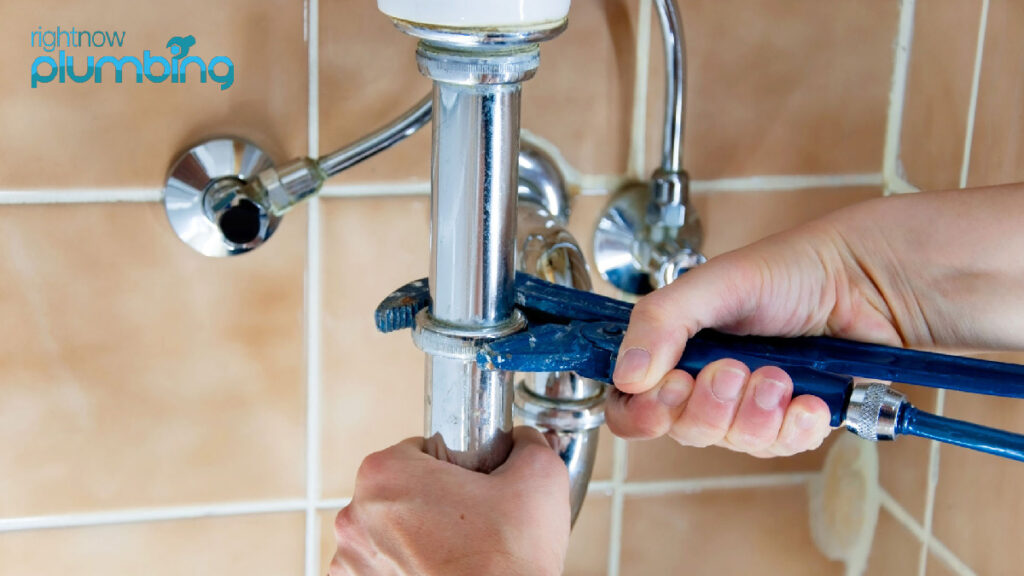
Over-tightening pipes and fixtures plague your plumbing system. It is disastrous. At first, it might feel satisfying but soon you regret when it’ll burst and end up with a mess. Over-tightening can lead to stripped threads, broken fittings, damage to surrounding walls, floors or countertops, and also increase risk of future leaks and repairs.
Common DIY Errors With Over-tightening Pipes and Fixtures:
● DIYers often apply too much torque, thinking that tighter is better, excessive force results in more damage to pipes and fixtures.
● Using wrong weapons never let you win the battles. Employing unsuitable tools for plumbing like wrenches or pilers, may add to the damage.
Best Practices To Avoid Over-tightening:
● Follow manufacturer instructions and adhere to recommended torque specifications.
● Invest in right tools specifically designed for plumbing purposes such as basin wrenches or pipe wrenches.
● Do not apply excessive force and avoid jerky movements. Pipes and fixtures need gentle treatment.
● After tightening, check the connection for leaks or damage.
Mistake 2: Using Chemical Drain Cleaners Too Often
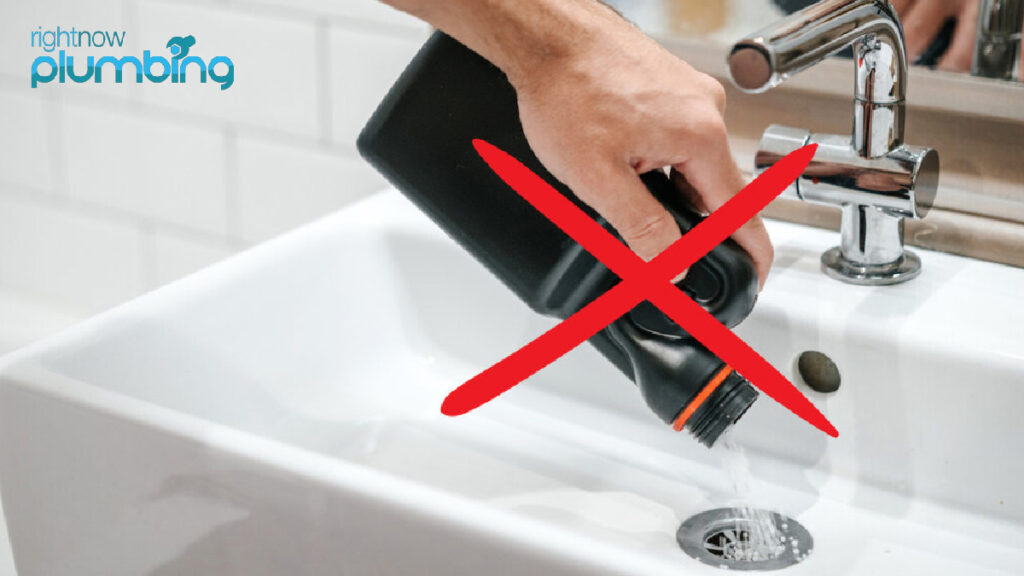
Chemical Drain Cleaners – A quick fix for clogged drains, easily available in the market, and is cheap. It gives temporary relief but slowly these harsh chemicals wreak havoc on your pipes. How? :
How Drain Cleaners Damage Pipes:
● Chemical drain cleaners can corrode pipes, resulting in leaks, cracks, and eventually collapse.
● Damage pipe surfaces, increasing the risk of clogging even badly in future.
● Damage away protective pipe coatings.
Safe Alternatives For Unclogging Drains:
● Use the timeless trustworthy Plungers to clean the clogs.
● Using augers or drain snakes can remove clogging without the need of harmful chemicals.
● Try a natural hack. Use Vinegar and soda. It is a non-toxic homely pocket friendly solution to clean your drains.
● Pour some hot water as it works to clear minor clogs and debris.
When to Call a Blocked Drain Plumber in Adelaide:
It’s time to call in the experts, if
● The drain water clogging is frequent.
● Clogging still persists after trying all the possible DIY alternatives.
● You suspect pipe damage or leaks
Mistake 3: Ignoring Small Leaks & Drips
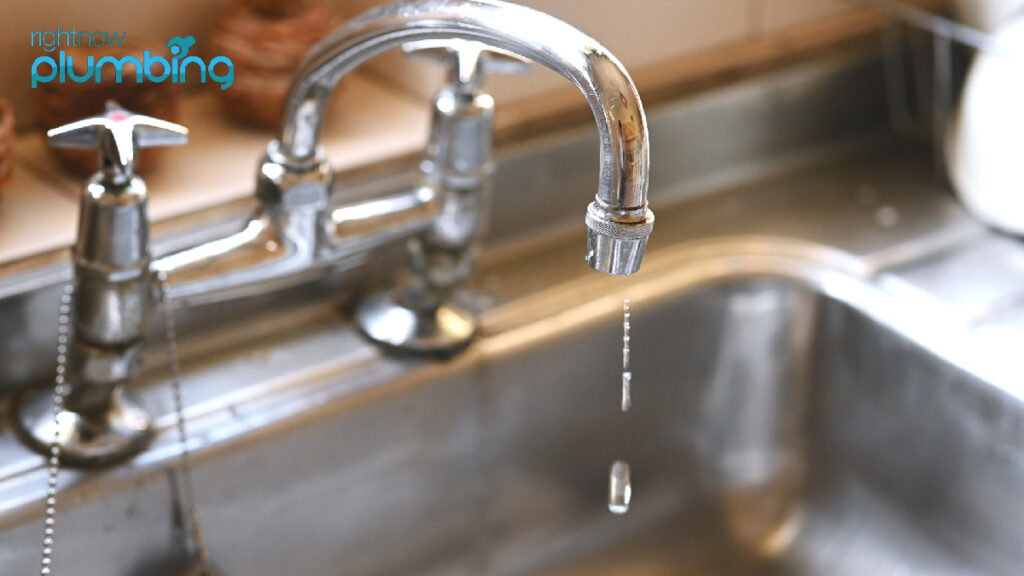
We often ignore minor leaking taps which seem harmless but continuing leaking drops and taps is a serious and alarming issue that needs to be addressed immediately before they become a headache.
Hidden Costs Of Leaking Taps And Pipes:
● Water wastage, almost 20 gallons of water per day is wasted.
● Increase in annual water bills.
● It damages surfaces like walls, flooring, ceilings, etc.
● Mold and mildew grow due to Excessive moisture.
Signs That Indicate a Serious Plumbing Issue:
● When discoloration and water stains are clearly visible.
● When water damage causes buckled flooring.
● A sudden surge in water usage.
● Signs of musty odors or mold growth.
How to Fix Minor Leaks:
● Tighten loose connections, if any.
● Dispose worn-out washers and install new ones.
● Seal minor leaking taps using pipe tape or epoxy.
Mistake 4: Incorrectly Installing a Hot Water System
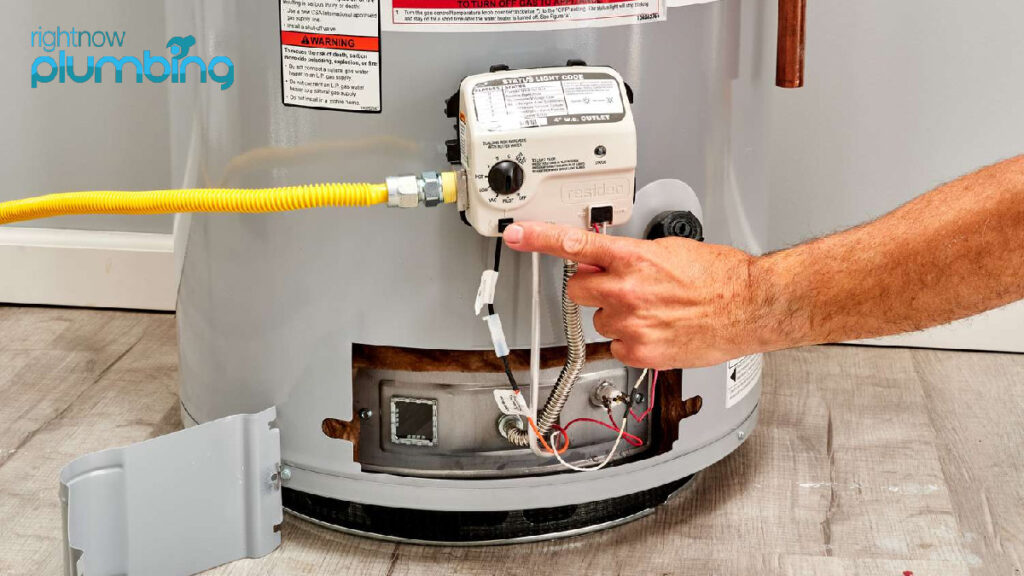
Common DIY Mistakes in Installing a Hot Water System:
● Installing an incorrect size of hot water system.
● Improper venting leads to reduced efficiency and safety risks.
● Incorrect wiring and connections like misconnecting pipes, valves, or wrong electrical connections leads to safety hazards.
Risks of Improper Gas or Electric Connections:
● Risk of explosion or fire due to loose gas connections.
● Risk of electrical shock, injury, or death due loose electrical connections.
● Carbon monoxide, a harmful gas, releases indicating a serious health risk.
Importance of Hiring a Hot Water System Expert in Adelaide:
● Follow all safety standards and control accidents.
● Control energy bills.
● Professional installation benefits you with warranty and after-sale support.
● A licensed plumber service in Adelaide ensures meeting local regulations and standards.
Mistake 5: Using Mismatched Pipes & Fittings
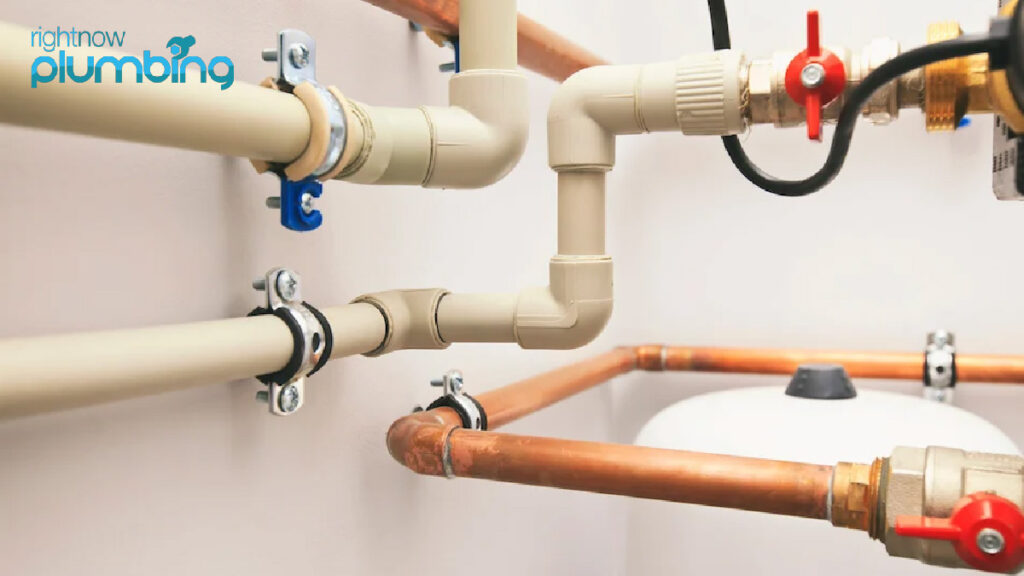
You can create perfect corrosive cocktail mixing and mismatching pipes and fittings. Incorrect selection of pipe materials, its sizes, and fittings ultimately results in leaks, corrosion, and costly repairs.
How Incorrect Pipe Materials Cause Corrosion:
Mixing the wrong metal combination for example, copper and galvanized may cause electrochemical reactions and it result in corrosion. Some metals also react with water, that leads to contamination and corrosion. Turbulence caused by incompatible materials or sizes with fittings also results in erosion and corrosion.
Common Errors in Pipe Sizing And Fitting:
● Incorrect size of pipe leads to water pressure corrosion and increase in energy bills. Do not use pipes that are too small or too large. Use appropriate size.
● Using fitting materials that are not compatible with the pipe material resulting in leaks and corrosion.
Professional Solutions For Long-term Plumbing Efficiency:
● A professional Plumbing Service in Adelaide is capable of selecting correct pipe and fittings material.
● Selection of precise size and fittings. This was improve the longevity of the fittings
● Offers Corrosion-resistant solutions.
Mistake 6: Poor Toilet Repairs & Installations
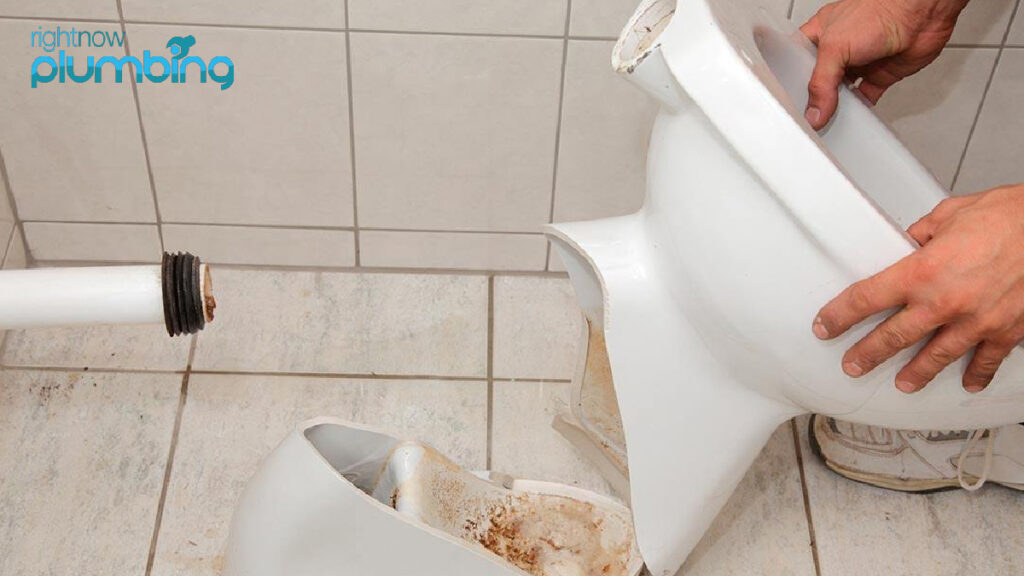
Signs of a Faulty Toilet Installation:
● When sat upon it a toilet rocks or shifts, indicating improper installation.
● If there is water shipping it is the sign of faulty wax ring or improper caulking.
● A constant running toilet indicates a malfunctioning flapper, fill valve, or other internal components.
How DIY Mistakes Lead To Leaks And Water Wastage:
● Incorrect wax ring installation.
● Improper or loose toilet flange can cause leaks and instability.
● Inadequate caulking resulting in water seepage and damage.
When to Call a Toilet Repair Plumber in Adelaide:
● When it requires specialized tools or expertise.
● Issue is of recurring nature. It still persists after trying all the possible DIY alternatives.
● Observe Water leakage.
● Always take help of a professional plumber while installing a new toilet for secure installation.
Mistake 7: Ignoring Water Pressure Issues
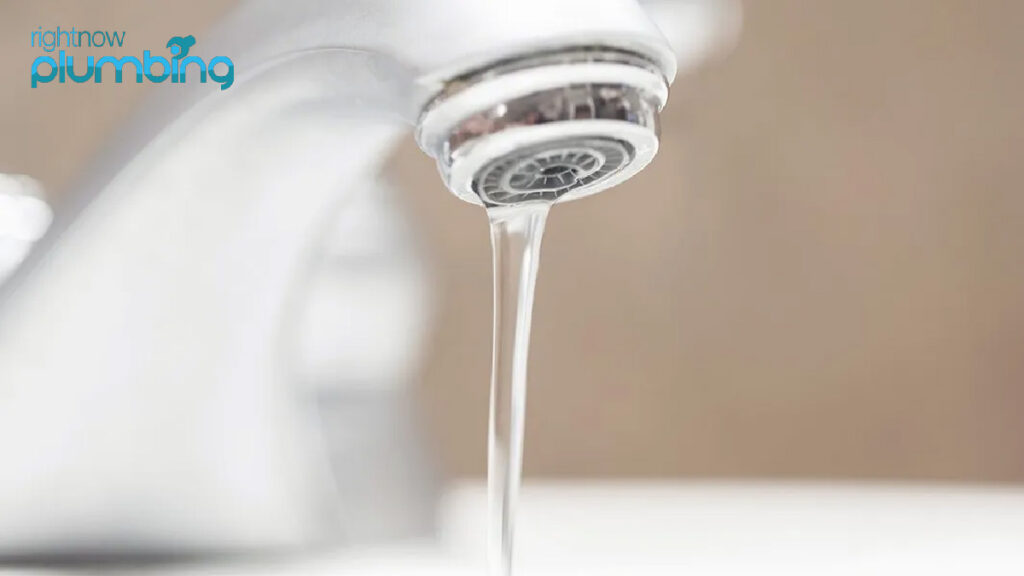
Causes of Low And High Water Pressure:
● The possible reasons behind low water pressure is mineral build up, corrosion, or blockages.
● Incorrect pipe size is also responsible for low or high water pressure.
● Use of faulty pressure regulators.
● Multiple supplies of water cause low pressure.
How Pressure Issues Damage Appliances:
● Premature wear and tear due to high pressure of appliances.
● Leaks and damages are results of low pressure.
● Due to pressure issues, efficiency of appliances is reduced. Thus increase in energy bills.
Solutions to Maintain Optimal Water Pressure:
● Use a pressure regulator which maintain optimal water pressure.
● Regular inspection and cleaning of pipes to safeguard from corrosion.
● Use correct size of pipe as required.
● Monitor water pressure before they become major problems.
Mistake 8: Attempting DIY Gas Fitting (Illegal & Dangerous)
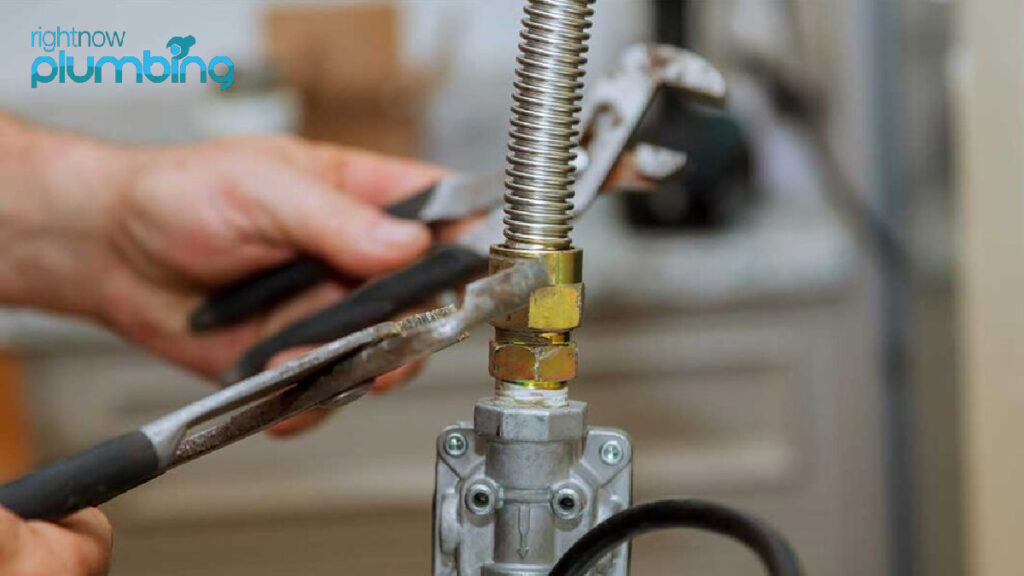
Attempting DIY gas fitting is to put your family, and property at risk of serious disaster. Gas fitting and plumbing needs specialized tools along with professional skills and related education.
Dangers of DIY Gas Plumbing:
Possible reason for gas leaks is improper fitting of gas pipes which may cause explosions, fires, or carbon monoxide poisoning.
Australian Laws on Gas Fitting:
● For gas fitting work, proper license is required.
● Compliance of safety standards as given in Australian Standard AS 5601.
● Proper and detailed inspection plus testing must be ensured.
Why Only a Licensed Gas Plumber in Adelaide Should Handle Gas-related Work:
Only a licensed gas plumber in Adelaide should handle gas-related work, because:
● Licensed gas plumbers are trained and have the required expertise.
● Licensed gas plumbers work with specialised equipment and tools that ensure utmost safety.
● Licensed gas plumbers are educated and aware of all the Australian Laws and safety standards that should be exercised while gas repairs.
Mistake 9: Forgetting to Shut Off Water Before Repairs
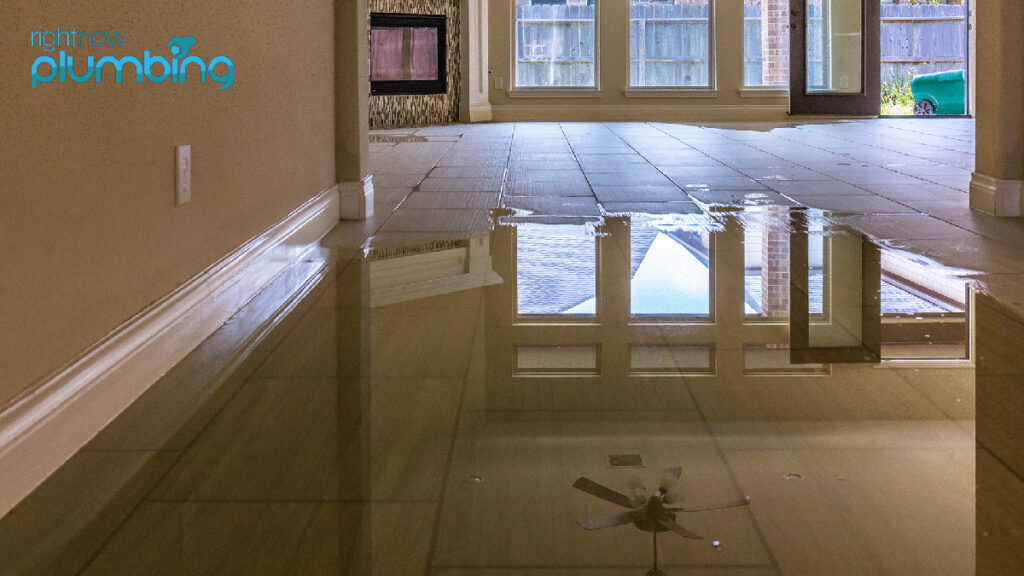
Common Flooding Accidents During DIY Repairs:
Failing to shut off the water supply can cause:
● Bursting of pipes leading to catastrophic flooding.
● Flooding all over the house.
● Risk of electric shock due to deadly combination of water and electricity.
How to Locate and Use the Main Water Valve:
● Usually the main water valve is located near the water meter.
● Educate yourself with the species of water valve, say gate valve or ball valve or butterfly valve.
● Rotate clockwise, as in most of the cases, to turn off the valves.
Steps to Prevent Water Damage:
● Shut off the water supply.
● Do not allow water to flow back into the pipes. Open the lowest drain valve and empty all.
● Test it after DIY is done to check if it is working or not.
● Add a shut off valve.
Mistake 10: Not Calling a Professional Plumber When Needed
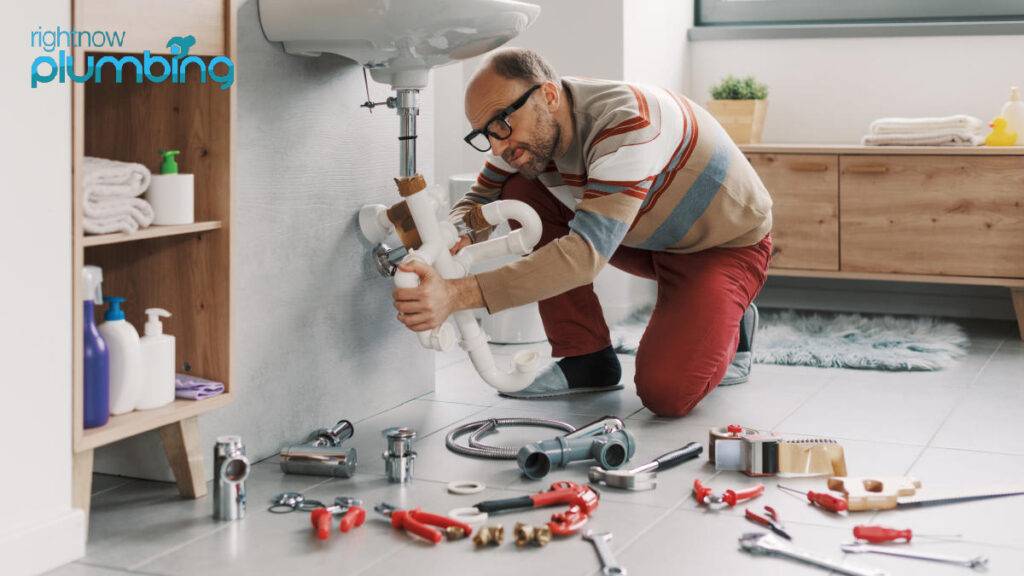
“I can fix this myself.” – a common middle-class household mindset to save the amount of professional plumber’s fees. And then call the professional, when they fail miserably.
When DIY Solutions Fail:
● In resolving complex issues.
● Due to lack of proper training and expertise.
● In the absence
● In the absence of specialised tools and equipment.
Although DIY solutions may seem cheaper upfront, the solution is temporary. And also ended up paying more in the long run. However, an Emergency plumber in Adelaide is available 24/7.
Conclusion
Avoid doing the above-mentioned common DIY plumbing mistakes that can fail your plumbing system totally and cost you even more in the long run. This article describes when to seek professional help from a licensed plumber in Adelaide to ensure a safe and efficient plumbing solution. BOOK YOUR APPOINTMENT of a professional plumber now.
Frequently Asked Questions (FAQs)
Can I Use Chemical Drain Cleaners for a Blocked Sink?
No, use of chemical drain cleaners for a blocked sink is not recommended because it damages Pipes, causes eye irritation, etc. Plungers, augers, hot water, etc can be used instead.
How Do I Know If My Plumbing Problem Needs a Professional?
Signs that indicate your plumbing problem needs a professional:
● When the issue is complex.
● Need specialized tools and expertise.
● When safety is a concern.
● When repairs are time-consuming.
● In case of emergency.
Can I Replace a Hot Water System Myself?
Reducing a hot water system is a complex task. And it requires professional expertise and experience to replace it. Hence consider hiring a professional after calculating the high degree of risk involved.
What’s The Fastest Way To Detect a Hidden Leak?
Here are some effective tips for detecting a hidden leaks quickly:
● Check for water stains.
● Inspect floors for warping or buckling.
● Listen for unusual hissing, dripping, or gurgling noises.
● Check the water meter.
● Check for musty odours
● When water bills increase.
Why Does My Toilet Keep Running?
Possible reasons are:
● Improperly adjusted flapper.
● Damaged or warped flapper
● Debris or mineral buildup
● Cracks or leaks in the tank or bowl
● Worn-out or damaged fill valve
● High water pressure
Is a Slow Drain Always a Serious Problem?
A slow drain can be frustrating, but not all are serious problems. Here are the possible reasons why a slow drain becomes a serious problem.
● Clogged sewer line
● Tree root invasion
● Pipe damage or corrosion
How Often Should I Get My Plumbing Inspected?
Plumbing inspection should be done every 2 to 3 years. You may get it done even more frequently like every year, if your plumbing system is aged.

